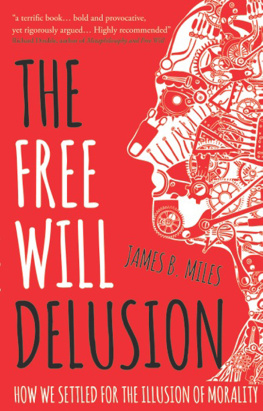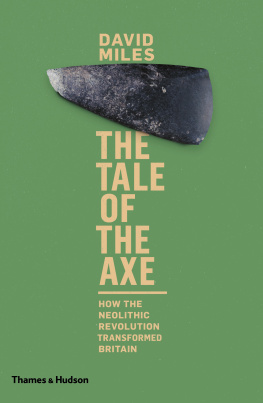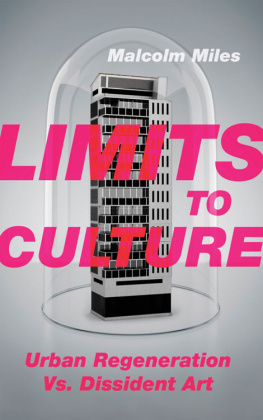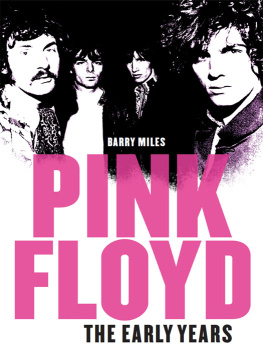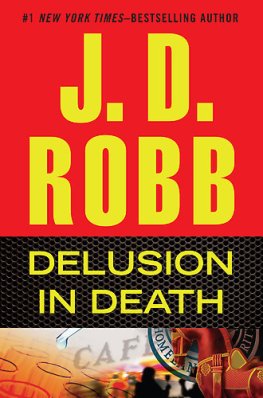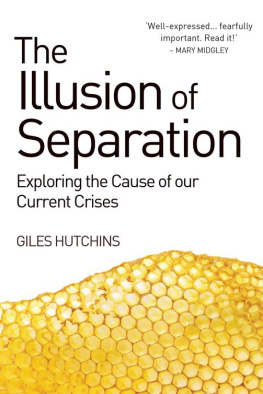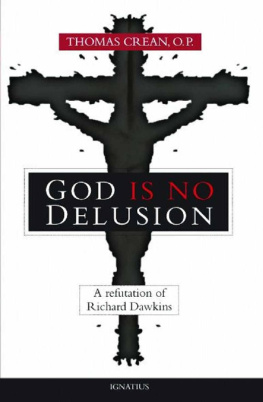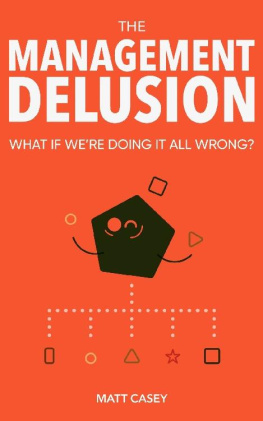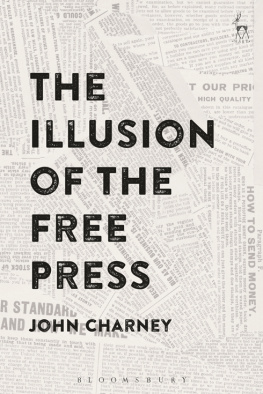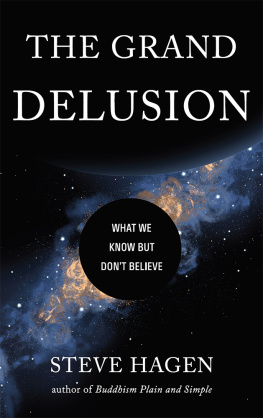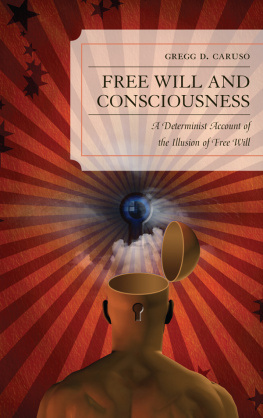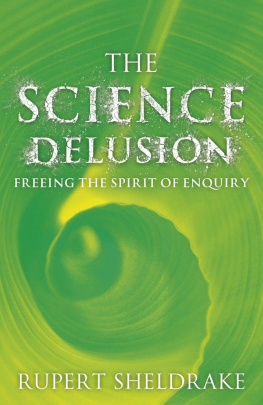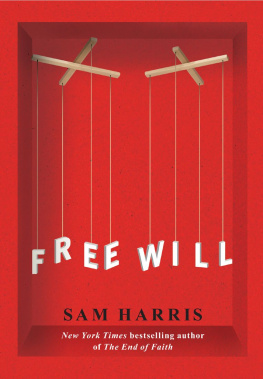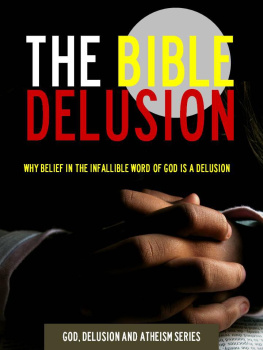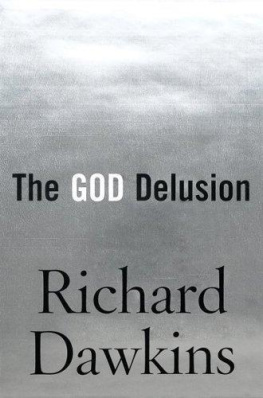Miles - The free will delusion : how we settled for the illusion of morality
Here you can read online Miles - The free will delusion : how we settled for the illusion of morality full text of the book (entire story) in english for free. Download pdf and epub, get meaning, cover and reviews about this ebook. year: 2015, publisher: Matador, genre: Science. Description of the work, (preface) as well as reviews are available. Best literature library LitArk.com created for fans of good reading and offers a wide selection of genres:
Romance novel
Science fiction
Adventure
Detective
Science
History
Home and family
Prose
Art
Politics
Computer
Non-fiction
Religion
Business
Children
Humor
Choose a favorite category and find really read worthwhile books. Enjoy immersion in the world of imagination, feel the emotions of the characters or learn something new for yourself, make an fascinating discovery.
The free will delusion : how we settled for the illusion of morality: summary, description and annotation
We offer to read an annotation, description, summary or preface (depends on what the author of the book "The free will delusion : how we settled for the illusion of morality" wrote himself). If you haven't found the necessary information about the book — write in the comments, we will try to find it.
Miles: author's other books
Who wrote The free will delusion : how we settled for the illusion of morality? Find out the surname, the name of the author of the book and a list of all author's works by series.
The free will delusion : how we settled for the illusion of morality — read online for free the complete book (whole text) full work
Below is the text of the book, divided by pages. System saving the place of the last page read, allows you to conveniently read the book "The free will delusion : how we settled for the illusion of morality" online for free, without having to search again every time where you left off. Put a bookmark, and you can go to the page where you finished reading at any time.
Font size:
Interval:
Bookmark:
PRAISE FOR THE FREE WILL DELUSION
The Free Will Delusion is a remarkable book that covers an enormous range of positions, ideas, and writers on free will and moral responsibility, which is already impressive. But to take this often esoteric material and form it into a book that is powerful, provocative, clear, accessible, and a joy to read: that is a singular achievement
Bruce Waller, philosopher, and author of Freedom Without Responsibility and Against Moral Responsibility
a terrific book. bold and provocative, yet rigorously argued.... Miles maintains a hard incompatibilist and anti-utilitarian position against the most prominent defenders of a belief in free will strong enough to support moral responsibility, including Kane, Searle, Dennett, Watson, Fischer, Frankfurt, P. F. Strawson, and the free will illusionist Saul Smilansky. Miles uses the premise of the unfairness of holding persons morally responsible for either determined or non-determined actions to show the intellectual and moral bankruptcy of free will theory. The Free Will Delusion is passionate, compassionate, and an exciting read. Highly recommended
Richard Double, philosopher, and author of The Non-reality of Free Will and Metaphilosophy and Free Will
PRAISE FOR THE AUTHORS EARLIER WRITING ON FREE WILL
I greatly enjoyed it and hope it prompts a good response from friends and foes alike. Its a funny one, of course, since it seems so counter-intuitive to disbelieve in free will
Richard Holloway, former Primus of the Scottish Episcopal Church, and retired Professor of Divinity, Gresham College
very fine and provocative. [Miless] account of the downsides of belief in free will in terms of deserved inequalities, decreasing concern for unequal wealth distribution and harsher views towards the poor and minorities as responsible for their own condition, is an important challenge to believers in free will like myself and a crucial issue at present for the human future generally. Important I believe for raising the issues so strikingly
Robert Kane, Distinguished Teaching Professor at the University of Texas at Austin, and Editor, The Oxford Handbook of Free Will
an impressive, powerful, thoroughly informed and eloquent challenge to the entrenched conviction that we have free will
Derk Pereboom, Professor, The Sage School of Philosophy, and author of Living Without Free Will
... which I was impressed by and much enjoyed
- Derek Parfit, Emeritus Senior Research Fellow, All Souls College, Oxford; Global Distinguished Professor of Philosophy, NYU; Visiting Professor of Philosophy, Harvard University
in general I find [Miless] reasoning superb
Emeritus Professor George C. Williams, author of Adaptation and Natural Selection and father of selfish gene theory
has greater chance of changing peoples views on free will than anything else available. Incredibly important
Will Provine, Tisch Distinguished University Professor, Cornell University
It doesnt get more trenchant than this! very well taken indeed music to my ears
Tom Clark, Director, Center for Naturalism
a polemical piece (remarkably so, for an academic journal) but its hard to deny that he has a point: theres a dark side to the belief in free will
Neuroskeptic
a violent dissenter from [the orthodox] point of view
BioEdge.org
[came] at the topic in a way that before now I had not considered
Stephen Platten, the Bishop of Wakefield
I agree with [Miless] analysis that a world in which human beings lacked free will would require a radically different conception of criminal responsibility
Eric Metcalfe, Director of Human Rights Policy, JUSTICE
I love it
David Levitsky, Weiss Presidential Fellow and Professor of Psychology, Cornell University
fascinating
Brian Martin, Professor of Social Sciences, University of Wollongong
Few manuscripts have made me smile as much as reading this one. This is impassioned, exuberant, high-octane and quite funny writing that goes after its subject matter in a relentless fashion
anonymous peer review for the British Journal of Social Psychology
FREE
WILL
DELUSION

Copyright 2015 James B. Miles
The moral right of the author has been asserted.
Apart from any fair dealing for the purposes of research or private study, or criticism or review, as permitted under the Copyright, Designs and Patents Act 1988, this publication may only be reproduced, stored or transmitted, in any form or by any means, with the prior permission in writing of the publishers, or in the case of reprographic reproduction in accordance with the terms of licences issued by the Copyright Licensing Agency. Enquiries concerning reproduction outside those terms should be sent to the publishers.
Matador
9 Priory Business Park
Kibworth Beauchamp
Leicestershire LE8 0RX, UK
Tel: (+44) 116 279 2299
Fax: (+44) 116 279 2277
Email:
Web: www.troubador.co.uk/matador
ISBN 978 1784628 321
British Library Cataloguing in Publication Data.
A catalogue record for this book is available from the British Library.
Matador is an imprint of Troubador Publishing Ltd
In March 2009 a British publishing house known for specialising in controversial non-fiction offered to publish the earliest draft of this manuscript, but subsequently withdrew that offer on concerns over the difficulty of marketing such a complex message (highly sophisticated subject matter too complicated in the current climate). A complex message, and for many a deeply unwelcome one. In hindsight, though, this was an important move, as that version was long on outrage and polemic but rather short on fully formed logical analysis. So began the first of many rewrites. Over the period late 2009 to early 2011 an updated version was being used at Cornell University as a text for students on the course LAW 7652, Human Free Will and Criminal Law, and I would like to thank the course organiser, my friend Will Provine. I would also like to thank the other Cornell academics philosophers, natural scientists and social scientists who have, since 2009, provided me with kind words and feedback on my writing, particularly Derk Pereboom, Yervant Terzian and David Levitsky.
Originally called The Free Will Delusion, the working title changed back and forth a few times, particularly after Sam Harris used that title for a 2011 magazine article. The text has changed far more profoundly than the title has, though, and since 2011 my work has acquired a tendency to upset people more thoroughly. In the period 2011~2012 Florida State University funded two separate studies solely to try to undercut my writing on free will. Its worth pointing out that FSU was recipient in 2010 of 4.4 million dollars from the billion-dollar Templeton Foundation; largesse intended to promote a better accommodation between religion and academia over the free will issue. The Foundations interest in free will, and the effect of the myth on the social order, goes back to well before 2010, and one world-renowned academic sitting on the Foundations board of trustees has called knowledge of the nonexistence of free will one of the worlds most dangerous ideas.
I would like to thank the journal editors who have carried my work or who have asked me to peer review others work on free will, and I would particularly like to thank Philip Laughlin at The MIT Press who in 2013 used me as a consultant on the arguments within the manuscript of one of the worlds leading free will philosophers. It was this approach from MIT Press that made me realise that I had moved sufficiently far from pure polemic such that I might once again think of getting a full manuscript published. There are a number of other academics I must single out for their kindness or words of encouragement, including the philosophers Robert Kane, Richard Double and Derek Parfit, but also the celebrated American biologist the late G. C. Williams. George Williamss technical assistance to me on free will was necessarily somewhat less than his incredible assistance during my earlier years writing on selfish gene (genic selection) theory, the theory he is credited with developing in 1966, ten years before Richard Dawkins popularised his work. However, without the confidence George showed in my early work, and which culminated in his writing the Foreword to my 2004 book, I may not have had the courage, years later, to go straight after the biggest names in free will theory. And including, sadly, being forced to target one of the best-known propagandists of Georges work, the philosopher and evolutionary theorist Dan Dennett. It should go without saying that I have benefited both intellectually and in presentation from reading the works of many philosophers, but in particular I have been influenced by the writing of Bruce Waller, Derk Pereboom, Richard Double, Ted Honderich and Saul Smilansky. Any errors in this work are of course mine alone. I would also like to thank the non-academics who have shown interest in my work, including Tom Clark at Naturalism.Org, and the former Bishop of Edinburgh and
Next pageFont size:
Interval:
Bookmark:
Similar books «The free will delusion : how we settled for the illusion of morality»
Look at similar books to The free will delusion : how we settled for the illusion of morality. We have selected literature similar in name and meaning in the hope of providing readers with more options to find new, interesting, not yet read works.
Discussion, reviews of the book The free will delusion : how we settled for the illusion of morality and just readers' own opinions. Leave your comments, write what you think about the work, its meaning or the main characters. Specify what exactly you liked and what you didn't like, and why you think so.

